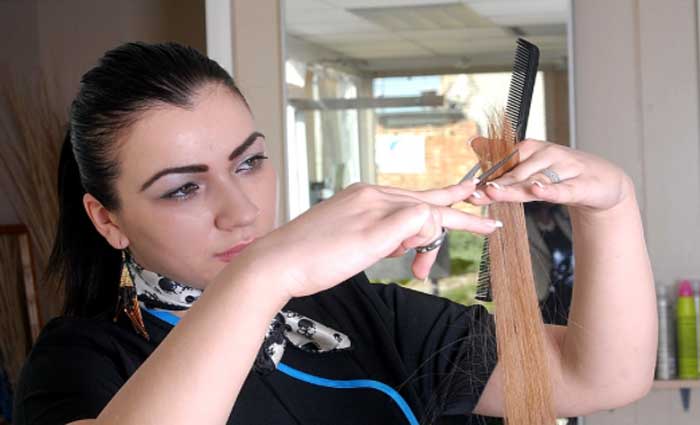Hairdressers in rural Australia end up being counsellors too
GUEST OBSERVER
Most people with mental health issues in rural areas don’t seek treatment and access to mental health services is limited outside the major cities.
So rural professionals like hairdressers, bank managers, agriculture suppliers and vets have a crucial yet often overlooked role in looking after the mental health of their community.
These professionals have trusted work relationships where country people often pour out their emotions and open up to them about their problems. Training in some simple skills would allow them to approach these conversations with confidence, and contribute to improving the mental health of their communities.
Rural mental health
Rates of mental illness in rural communities are actually similar to those in metropolitan areas. However, rural people have higher rates of suicide and harmful alcohol use and about 70% of those with mental health problems do not seek treatment.
This is for a few reasons. First, there is a lack of mental health services in rural areas. In NSW for example, a quarter of people live outside major cities but 91% of psychiatrists have their main practice in a city. Second, people have difficulties accessing what specialist rural services there are due to cost (like lower rates of bulk-billing in rural areas) and distance.
And third, the stigma attached means many people may not seek help. This is especially the case in smaller communities where individuals are more visible and confidentiality may be less certain, and there is a culture of stoicism and self-reliance. All of this leads to people in rural areas being less likely to seek help – people from cities are almost twice as likely to have seen a psychologist in the last year (15%) compared with those from rural areas (8%).
Talking with ‘safe’ professionals
Rural people do often talk about their problems with “safe” professionals – professionals they already have trusted relationships with for other routine reasons. And these professionals – hairdressers, accountants, vets, teachers, agriculture suppliers – often listen to their problems.
Accountants and bank managers are good examples. A rural accounting firm once asked me to come in and train staff on how to deal with farmers who were attending meetings about finance or succession planning, and then letting it all out in a flood of tears about how stressed they were, and sometimes even their thoughts about suicide.
It can be easy to see how hairdressers too can be proxy counsellors, given the very close and trusting relationships they often have with their (especially female) clients. But their role in rural areas can be even more valuable. Some rural families may have only one car for the household, so they may only make it into town once a week. With such limited social contact, the time spent with hairdressers, grocers and early childhood nurses is very valuable in providing social support.
Supporting rural professionals
As mental health professionals we should be actively supporting these existing relationships between people who may be struggling and the “safe” professionals they already talk with. The Turnbull government’s reforms for mental health services announced in 2015 emphasised “our current ‘one-size-fits-all approach’ is not helping Australians […] as best it can”.
The reforms included moving towards a “stepped care model” where people receive varying levels of intervention and support depending on their level of need. For people struggling with emotional issues (but not a mental illness) or an actual (but unrecognised) mental illness, non-stigmatising community support where they are listened to and referred on as appropriate is exactly what they may need.
How can we support these professionals so they know what to do when someone opens up to them? There are a number of existing training programs, including the excellent Mental Health First Aid and Rural Adversity Mental Health Program.
And there is a precedent for providing such support – in the US state of Illinois hairdressers are being given training in domestic violence prevention because of the trusted relationship they have with their clients.
Some tips for supporting someone when they open up to you:
- listen more than you talk
- be non-judgemental
- be aware of appropriate services to refer the person to
- use open-ended questions (cannot be answered “yes” or “no”, such as “so tell me about …”)
- encourage exercise, healthy eating, sleeping and socialising
- be honest - be yourself
- spend time with them
- look after yourself.
Do not:
- give advice (such as “when I am stressed, I have a glass of wine or two” or “go and have a nice flutter at the TAB, that always cheers me up”)
- pressure them to “snap out of it”, “cheer up” or “get their act together”
- avoid the topic
- assume the problem will go away.
It’s important to encourage people and provide a sense of hope that “help is available”. Sometimes all they need is someone to listen.
Gene Hodgins is senior lecturer and Clinical Psychologist, Charles Sturt University and author for The Conversation. He can be contacted here.
